
Here at Music Xray, we’re nothing if not candid. OK, we’re not going to disclose sensitive business information but we are a very transparent company when it comes to discussing the thinking behind our strategies and business model. And, when what we do doesn’t work, we talk about it openly, make adjustments and come at it again. I believe that sharing our challenges offers more benefits to our company than risks. We want to provide the best possible service to both industry professionals and musicians – and one of the best ways to do that is to simply be forthcoming about whom we are and what we’re trying to accomplish. When we do this, the feedback is invaluable.
First, let’s be crystal clear about what we do.
Our overarching goal is to help the industry identify high potential songs and talent at the earliest possible stage – well before those bands and tracks have time to gain social traction on their own. But it’s not just hit music we help the industry identify. We help the industry find appropriate music for every opportunity, such as a movie soundtrack or an advertising jingle or video game music. We do this by opening up the A&R and music supervision process to independent musicians and songwriters everywhere and then by providing the industry with the tools and technology to make the screening and filtering process efficient, accurate, and more enjoyable than via ANY other method.
While everyone who should know us still does not, Music Xray is, hands down, the best at what we do. We didn’t get in this to be second best. We will never stop improving and innovating, but we are confident today that no one can find a more effective service on the market and one would have to be genuinely bonkers to think the pre-Internet way of doing these things holds a candle to Music Xray.
That said, the question we hear the most is:
Why do musicians have to pay to submit music to industry professionals on Music Xray?
 Often, that question is the sole reason a musician decides not to even give Music Xray a second glance. It’s impossible to know how many potential users we lose simply because our model is so off-putting to them on the surface that they look no deeper. I’m sure there are many. And unfortunately, when that happens, everyone loses a little bit. The musicians miss out on what truly is the best system ever developed to get their music to the right ears. The industry misses out on some very worthwhile music, and we miss out on the opportunity to delight a user while doing some business.
Often, that question is the sole reason a musician decides not to even give Music Xray a second glance. It’s impossible to know how many potential users we lose simply because our model is so off-putting to them on the surface that they look no deeper. I’m sure there are many. And unfortunately, when that happens, everyone loses a little bit. The musicians miss out on what truly is the best system ever developed to get their music to the right ears. The industry misses out on some very worthwhile music, and we miss out on the opportunity to delight a user while doing some business.
We address this question in multiple places on the site. We write about it fairly often on our blog and we regularly engage users on social networks about this one single topic. Even so, it remains a persistent question and sometimes it even provokes such a visceral reaction in people that they become incapable of engaging in critical debate on the subject.
The fact that this question is asked so frequently is a weakness our company must continue to overcome.
Don’t get me wrong. Music Xray is growing robustly at about 25% a month so clearly, we’re doing a lot of things right. Most of our business is repeat business and since there are no membership fees, those returning customers are obviously finding value the first few times they give the site a try. The reason we give all new users a $4 credit is so that they can indeed try the site for free before they spend any money.
Counter-intuitively though, our business model, which requires that submitters pay a fee to submit music to the industry professional of their choice, is one of our greatest strengths. And I don’t mean it’s our greatest strength because it provides us with a revenue stream. That’s actually secondary. Let’s look, point-by-point, at why this model is so effective.
First level of screening:
 Many young musicians have no recollection of how the music business used to work in terms of music submissions. A&R people and music supervisors used to become completely overwhelmed with envelopes full of tapes and CDs all over their desks. It got to the point where they simply adopted a policy of not accepting unsolicited material. That means, if they didn’t request to receive your music, it never got listened to. In fact, it went right into the trash bin the moment it arrived.
Many young musicians have no recollection of how the music business used to work in terms of music submissions. A&R people and music supervisors used to become completely overwhelmed with envelopes full of tapes and CDs all over their desks. It got to the point where they simply adopted a policy of not accepting unsolicited material. That means, if they didn’t request to receive your music, it never got listened to. In fact, it went right into the trash bin the moment it arrived.
Imagine that. People had to put their music on a CD, make it look as professional as possible, put all their lyrics and bios and photos into a big envelope, pay the postage and send it away. Even so, the music companies were completely overwhelmed and had no way of cost-efficiently screening that music. Sure, a lot of gems were lost to the trash bin, but there was no solution.
That’s the way it remained at many companies until Music Xray.
But imagine if Music Xray had simply just lowered the barrier by only eliminating the need to package up all your music and send it off. We gave that a try and while there are many responsible musicians out there who only make relevant and carefully targeted submissions, there were many who simply sent in every song they ever wrote and recorded to every opportunity. The industry professionals were more overwhelmed than ever. It didn’t solve a problem for anyone. The professionals were just as frustrated (and eventually never logged in to attend to their submissions) and the musicians were not getting heard.
At Music Xray, we solved this problem by creating a kind of tollbooth. By charging a small, $4 transaction fee to make a one-song submission to the industry professional of their choice, musicians must screen their own music before submitting. Most of those musicians who were previously submitting every song they had to every opportunity were throttled, and that had the immediate effect of reducing the load on the professionals so much that they were no longer afraid of their in-box. It also drastically increased the quality of music the professionals were hearing because musicians were being more careful to submit only their best material or only the music they truly believed had a shot at making the final cut in the professional’s decision-making process.
Then, it turned out that some music companies with big names like MTV or Columbia Records were still getting too many submissions via Music Xray and it was still impossible for them to keep up – not because artists continued to submit too many songs each, but rather because there were simply too many artists overall willing to pay four dollars to reach those companies. Keep in mind, another feature of the site that makes it all work is that we require every industry professional with an account to attend to each and every submission they receive. They must listen and respond to the submitter whether they select the track or not. So, we had to give the professionals a tool to help them regulate the pace of submissions.
One way to solve this was to simply enable them to close the drop box after it contained a certain number of submissions. You know, kind of like the way mobile phone voicemail works. When it’s full, you can’t leave any more messages. But that didn’t seem like the best solution since it was simply delaying the closed-door policy rather than eliminating it. Another idea was to enable musicians to submit only one or two songs to each drop box or to limit the number of submissions they could make overall in any given month. That created artificial barriers and also resulted in the unanticipated problem of Music Xray needing to staff-up with customer service representatives because it seemed so many artists requested exceptions to this rule – some of them were very legitimate requests with solid reasoning behind them. Our customer service requirements would have become so costly that we would have had to raise the $4 transaction fee significantly.
We had established the $4 transaction fee as a sort of throttle, so being consistent with our own thinking, it seemed logical to simply enable the professional to add an additional submission fee (on top of our $4) which they can raise and lower as needed to increase or decrease the pace of submissions. If they’re getting too many submissions they can raise the fee. If they are getting too few, they can lower it.
The solution worked perfectly in a practical sense. But it does raise other questions like, isn’t paying a fee to industry professionals to listen to your music sort of like bribery? Is it ethical for them to take money from musicians who are supposed to be paid for their music, not pay to have it heard? Given the sometimes-unrealistic aspirations of musicians who are just starting out, others have asked if it’s even ethical for Music Xray to charge starving artists for a shot at something they have no realistic chance at achieving.
Those too are fair questions. We acknowledge that there is more than one answer and perhaps more than one way to address these issues. For the most part, we think we’ve settled on what works best but we’re always re-thinking and we’re always open to new ideas. For now, our thinking goes like this:
Isn’t paying a fee to an industry professional to listen to your music sort of like bribery?
 Keep in mind that the primary function of the fee is to serve as a first level filter. The fact that money ends up on the table is a bit of a side effect. It must go somewhere, so who should get it?
Keep in mind that the primary function of the fee is to serve as a first level filter. The fact that money ends up on the table is a bit of a side effect. It must go somewhere, so who should get it?
Music Xray takes part of it. Doing so enables us to leave the initial transaction fee at the reasonable amount of four dollars. Otherwise, we’d have to raise it so we can keep the lights on. We have a growing staff. The website and underlying technology were very expensive to build and we employ a full time development team that keeps rolling out new features and enhancements. We operate leanly but not without significant costs.
For the remainder of the money, we offer a couple options. Music industry professionals can keep their portion as long as they genuinely use it to offset the costs of screening music, such as paying their A&R staff a little bit of overtime to attend to the submissions they receive via Music Xray. It’s not foolproof but, as per our policy, they cannot use the money as any kind of significant revenue stream that keeps their lights on. We acknowledge that is not easy to police, but there are a limited number of professionals on the site. We have a relationship of some kind with most of them and some extraordinary insights into their businesses. Usually, we can tell if an industry professional is abusing the site and its users. We can monitor things like number of songs received vs number of songs selected. If we’re suspicious, we can monitor an industry professional’s activity on the site a bit more closely. It’s not a perfect system, but we have deleted professional accounts for abusing the system so it is effective. We have very good tools that enable our musician-users to police the site and to alert us if they suspect a professional is abusing it.
Of course, there are some companies who simply cannot accept submission fees as a matter of policy which would require a board-level decision to change. To account for those cases, we’ve set up a number of charities on the site such as Musicares, Save The Children, and UNICEF. Many industry professionals divert some or all of their submission fees to those charities. Some say so publicly on their profiles. Others do it quietly. It’s their choice.
Shouldn’t musicians be paid when their music is heard rather than pay someone to listen?
That’s one of those questions that sounds reasonable on the surface but really springs from fallacious logic.
The professionals who are being paid a token amount to hear tracks on Music Xray would not be “paying customers” anyway. These are people who are screening a musician’s music as a sort of audition for an opportunity. There are many parallels in other industries where this has been standard practice for a long time. Many schools charge an application fee. Processing fees are common in many industries as well. Doctors charge patients for check-ups and evaluations even when there is no diagnosis to follow. By spending their time with one patient, they’ve had to forego seeing another patient. Attorneys charge consultation fees. Accountants charge for just looking over documents.
Of course, in the end, a musician should expect to make money from their music if it’s good enough. But we live in an attention economy and before anyone is going to give you any money, they must first give you their attention. Attention is a limited resource. Putting a price on it is a completely legitimate thing to do. Is it ideal? Perhaps not. Is there a better way? Maybe, but perhaps not. Is it somehow unethical? Absolutely not.
Is it ethical for Music Xray to charge aspiring musicians for a shot at something they may have no realistic chance of achieving?
I don’t think this is even a fair question. On Music Xray, the submitter receives value for every submission they make. In the worst of cases, they get a response from the industry professional they submitted to even when their song or act is rejected. Their song also gets rated by the industry professional across several criteria such as composition, arrangement, production, and hit potential. After they’ve submitted their song five times and accrued five ratings, they can see the average of those ratings. For just a few dollars, the musician is getting sincere, transparent, and professional feedback that could have taken them months or even years to acquire via any other method.
Secondly, we make available on the site a lot of professionals who are there solely to provide feedback and career coaching. Those who don’t want to spend money to be considered for a concrete opportunity are encouraged to get professional feedback to learn if they’re ready. Just like with anything, one can learn by taking life’s knocks. A few rejections and scraped knees is part of life. We make a concerted effort to post success stories on the site and link to the music and bands that have been successful. Anyone can hear the other bands and tracks they must compete against in order to secure a deal.
But more importantly is how success on Music Xray is defined.
Sure, success is landing a big, career-changing deal. But success is also making a key connection with an industry professional that blossoms into a working relationship that otherwise would not have occurred. It’s getting a song into a small podcast or connecting with a blogger that writes about your band. Success is really anything that helps a musician advance their career to the next level, whether that’s the stage at Madison Square Garden, their song in an episode of CSI, getting onto The Voice as a contestant or simply meeting a producer who helps them improve their sound.
 The music space has changed so much over the past decade that business model innovation is inevitable. Some people will resist. Some people will never get it despite lengthy explanations like this one. Some people will not be convinced by the fact that we’ve attracted serious institutional investors who would never back a shady company. Some won’t be swayed by the fact that world class business schools conduct analytical case studies precisely on our business model innovation. Many of those people will unfortunately be left behind, out-competed by their contemporaries who embrace change as has happened time and time again over the course of human history (pockets, the Internet, rock and roll… all just fads).
The music space has changed so much over the past decade that business model innovation is inevitable. Some people will resist. Some people will never get it despite lengthy explanations like this one. Some people will not be convinced by the fact that we’ve attracted serious institutional investors who would never back a shady company. Some won’t be swayed by the fact that world class business schools conduct analytical case studies precisely on our business model innovation. Many of those people will unfortunately be left behind, out-competed by their contemporaries who embrace change as has happened time and time again over the course of human history (pockets, the Internet, rock and roll… all just fads).
When an easier, more efficient way of doing something exists and that way actually gets better results, no one wants to go back to the hard way.
Mike McCready
Co-founder / CEO
Music Xray




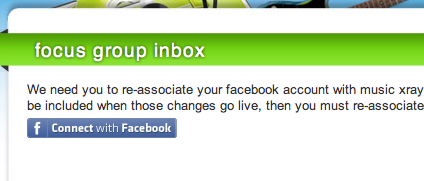
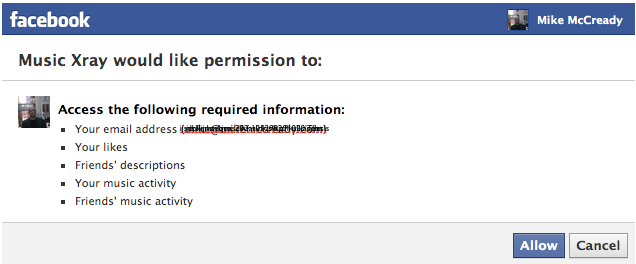
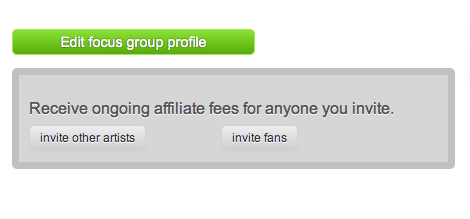



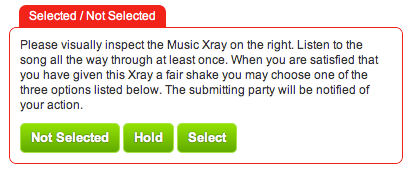
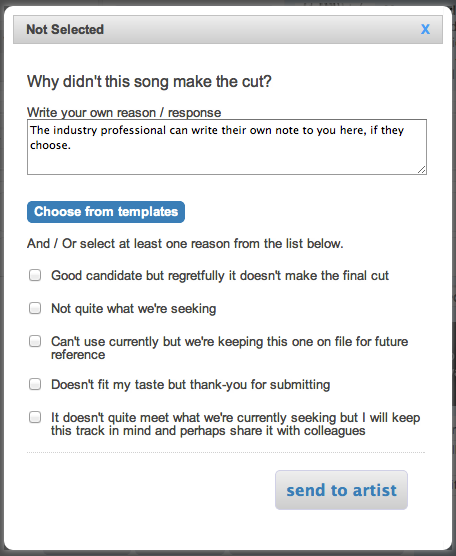
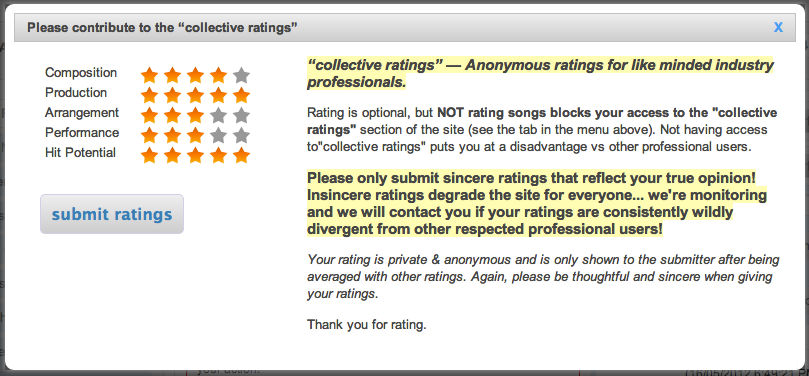
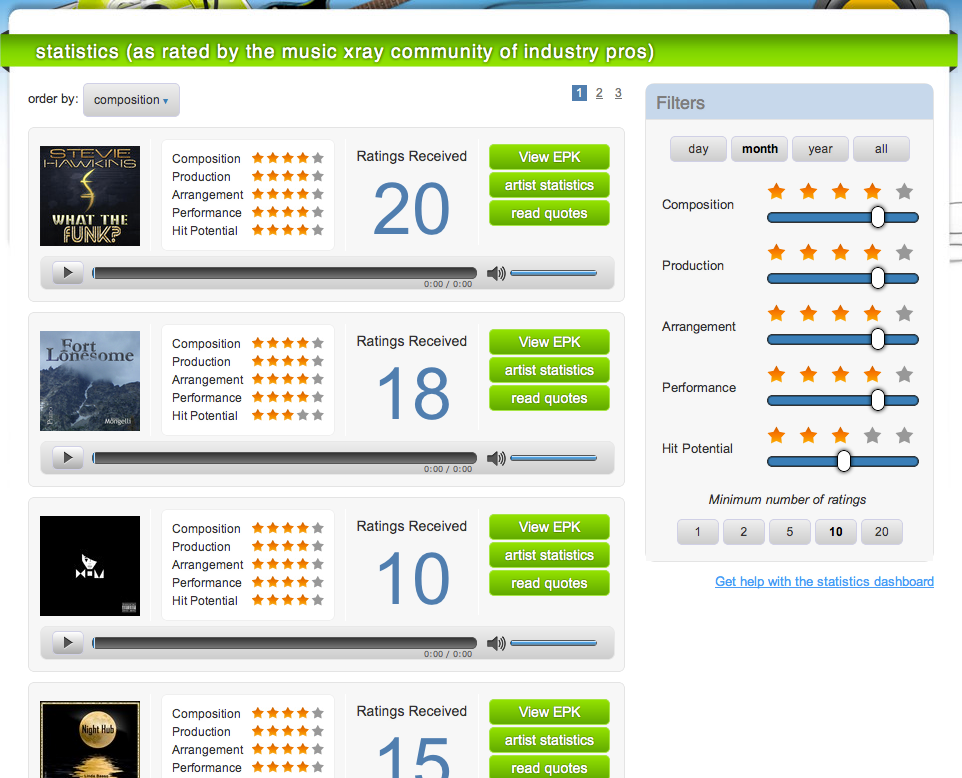
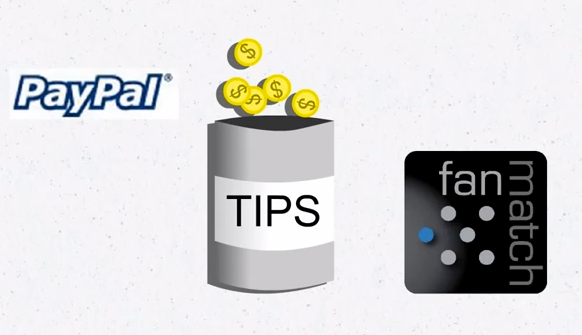
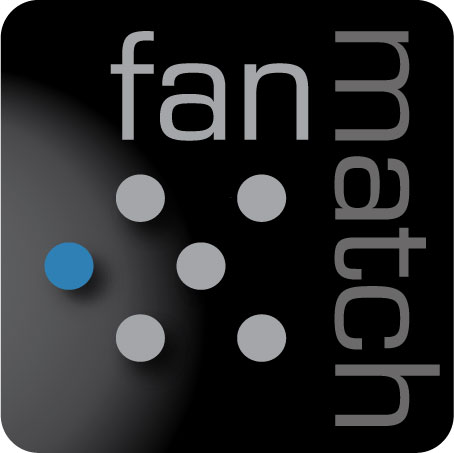
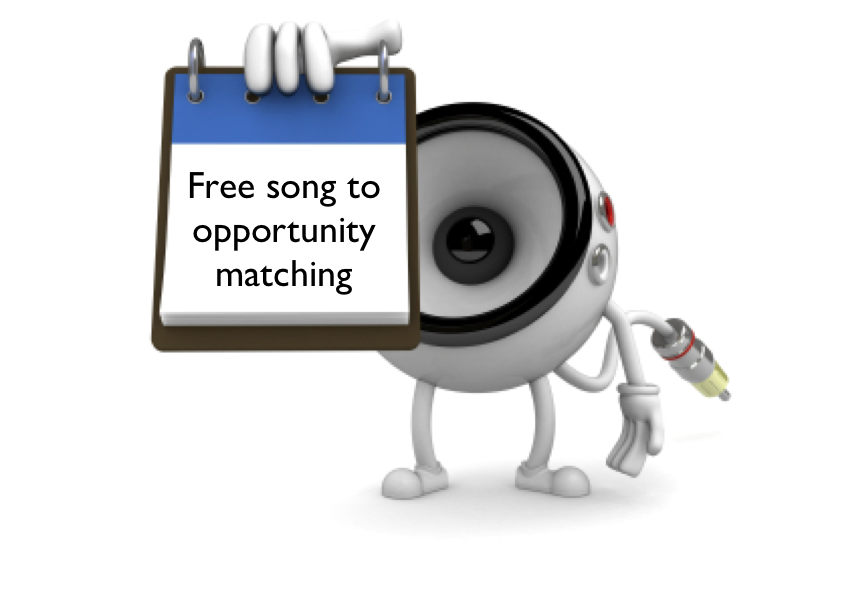





 Obviously, this is an indication that we’re effectively solving a problem for both constituencies. A quick
Obviously, this is an indication that we’re effectively solving a problem for both constituencies. A quick  But more importantly, and more interestingly to you, is that I think this says something important about the indie music space overall. Musicians are understanding that times have changed and that they need to invest in the advancement of their careers the same way they invest in recording great music. They are identifying the legitimate businesses that they find effective and they are counting Music Xray among them. We are thrilled and determined to continue to warrant the accolades.
But more importantly, and more interestingly to you, is that I think this says something important about the indie music space overall. Musicians are understanding that times have changed and that they need to invest in the advancement of their careers the same way they invest in recording great music. They are identifying the legitimate businesses that they find effective and they are counting Music Xray among them. We are thrilled and determined to continue to warrant the accolades. We set out to re-imagine the A&R process, make it more fair and transparent, while at the same time improving accuracy, offsetting costs and saving time for industry professionals who earn their livelihoods with their ears. While our service is never complete, we have achieved the goal of being the best professional music filter / discovery platform that exists or has ever existed.
We set out to re-imagine the A&R process, make it more fair and transparent, while at the same time improving accuracy, offsetting costs and saving time for industry professionals who earn their livelihoods with their ears. While our service is never complete, we have achieved the goal of being the best professional music filter / discovery platform that exists or has ever existed.

